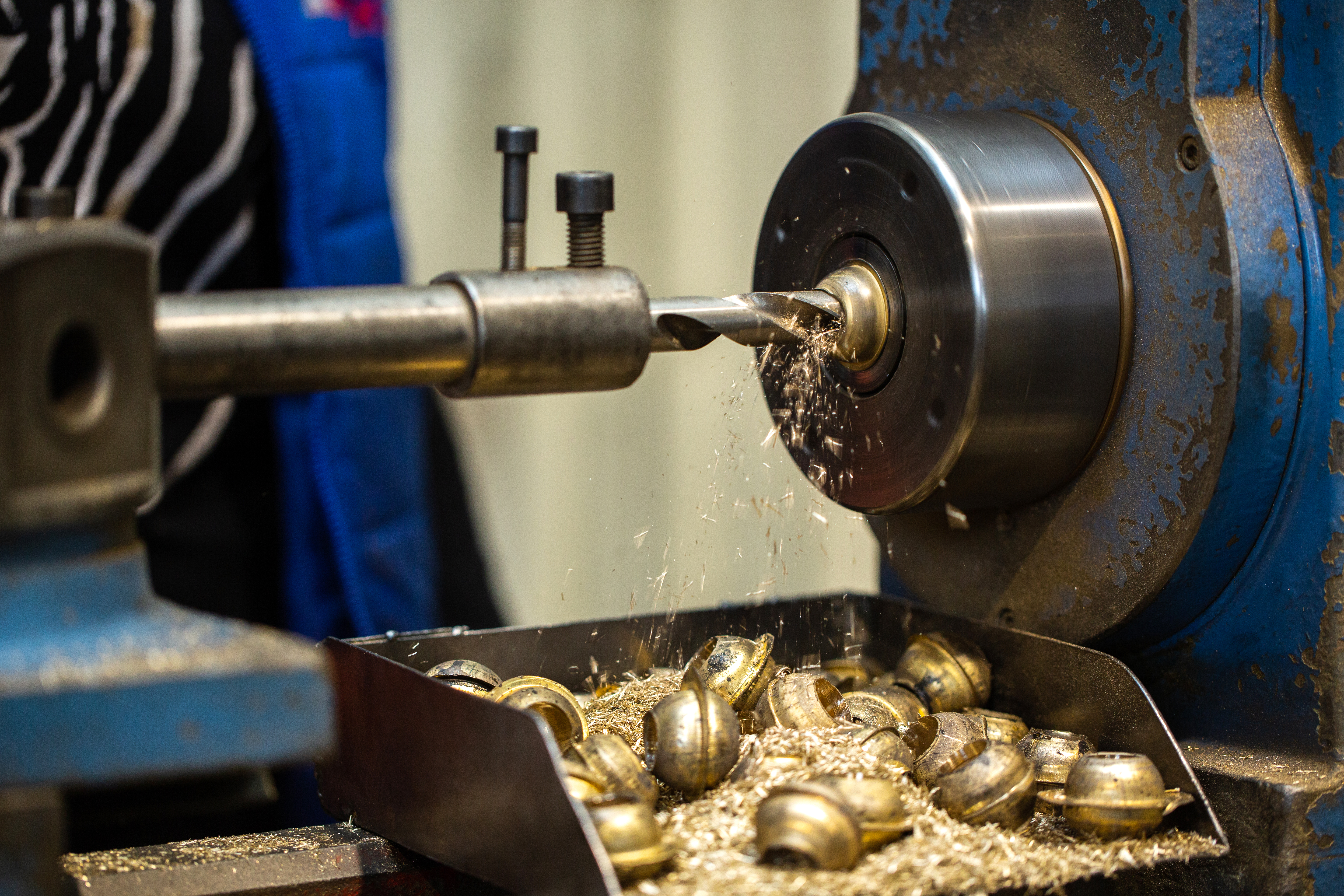Why Marine Grade Metals Matter in Marine Casting

Strong 8k brings an ultra-HD IPTV experience to your living room and your pocket.
It's not an option to use the right metal for durable components on ships, submarines, or offshore platforms. It's a necessity. Marine-grade metals provide the best solution. Marine-grade metals are designed to withstand the harsh conditions of the marine environment. Moisture, corrosion, and high pressure are all constant threats.
In the marine industry, reliability is not optional. Every part, from propellers to engine mounts and structural parts, must deliver safety and performance. Marine casting, the process of forming metal components for use in marine applications, relies heavily upon metals that are resistant to rust, corrosion, and wear.
Explore why marine-grade metals are critical in marine casting and how businesses use them to improve the performance and durability of their products.
What are marine grade metals?
Marine Grade Metals is a material that has been developed or treated in order to resist the harsh effects of humidity, saltwater, and weathering. These metals provide enhanced corrosion resistance, durability, and strength.
Marine-grade metals are available in a variety of types.
Stainless Steel, especially 316 grade
Bronze and Nickel-Aluminium Bronze
Aluminium Alloys
Copper-Nickel (CuNi) Alloys
Metals that are resistant to corrosion or can be coated with a coating for marine use are frequently chosen. These metals help to avoid structural failures and costly repairs. They also keep the environment safe.
Why High-Quality Materials are Needed for Marine Casting
Marine casting is the process of producing parts for use in or near water. These parts could be exposed to extreme weather conditions, water currents, or constant exposure to moisture. The part may fail prematurely if the metal used is not suitable.
Why Marine Grade Metals Matter:
1. Corrosion Resistance
Saltwater is a very corrosive environment. Marine-grade metals have been developed specifically to resist rust and corrosion. These metals are used in casting to ensure that the components won't degrade too quickly at sea.
2. Durability under Tough Conditions
Ships and marine gear are subjected to a great deal of pressure, including waves, winds, and movements. Components made from marine-grade metals can withstand such conditions and remain intact, reducing maintenance costs.
3. Improved Safety
One small failure can cause a large number of operational or safety issues in marine environments. Metals designed to last under such conditions can help prevent accidents and ensure that equipment works as expected.
4. Longer Service Life
Marine-grade metals are more durable and last longer. This reduces the cost of replacement. They are a more reliable investment, especially in industries that depend on consistency.
Casting Marine Grade Metals: Real-World Applications
Marine casting is used in many industries. Marine casting is used in a variety of applications.
Shipbuilding: Rudders and propellers. Pumps, valves, and engine parts.
Offshore Platforms: Support brackets and pipeline connectors.
Fishing vessel: Deck equipment, hull fittings, and gear
Port machinery, cranes, and support structures: Lift arm, base plates, and support structures
These applications all require the ability to withstand extreme conditions. Marine Grade Metals offers the performance required in these challenging roles.
What happens if you don't use the right metals?
When a company uses metals of low quality for marine casting, it can have costly results:
Rust appears quickly and damages parts.
Recurring breakdowns may require expensive repairs or replacements.
Unsafe Equipment can pose a danger to users or workers.
Delays in operations can affect the timeliness of business and customer satisfaction.
By choosing the right materials, you can avoid all these risks.
Choose the right marine-grade metal for your needs
Different marine environments require different metal properties. This simple guide will help you choose the best marine-grade steel for your business.
Metal Type Best For
Stainless Steel (316):Strong corrosion resistance for general marine use
Bronze/Nickel Bronze: High-load bearings, propellers, and high-load applications
Aluminium Alloys: Lightweight structures, boats, hatches
Copper-Nickel (CuNi): Cooling systems using seawater piping
Consult with experts in marine casting to determine which material is best for your application, location, and load requirements.
How Expert Manufacturers Add Value to Marine Casting Projects
Reliable manufacturers, such as AKP Ferrocast, ensure that marine castings are carried out using marine-grade Metals. These companies know how important it is to choose the correct material for the application at hand and adhere to strict quality standards.
Businesses can benefit from:
Well-tested marine metal alloys
Precision Casting Techniques
Consistent part quality
Expert advice on materials, applications, and more
Working with a trusted brand is the best way to ensure product reliability and performance over the long term, even though there are a lot of providers on the market.
Marine Cast Parts Maintenance Tips
Proper care will extend the life of marine-grade metals, even though they are designed to resist corrosive elements. Here are some tips to help you:
Regular cleaning: Remove salts and debris regularly to avoid build-up.
Routine inspection: Check for early signs of corrosion or fatigue.
Protective Coatings: Apply paints and coatings to increase the resistance.
Do not mix metals: Mixing different metals can lead to galvanic corrosion.
These steps will help businesses maximize the value of their marine components.
Final Thoughts
It's not just good practice to use marine-grade metals for marine casting. It's also essential for safety and durability. The right metal is essential when you are manufacturing parts for offshore rigs or ships.
Metals of marine grade ensure that parts will last longer, perform more efficiently, and can withstand harsh environments. Selecting the right materials for businesses that want to increase efficiency and trust in their marine operations is a smart move.
Choosing the right manufacturing partner is important for any project. They help you pick the right materials and make sure everything is made the right way. This lowers the chances of mistakes and helps the parts last longer. A good partner can also guide you on small changes that can make a big difference in the final product. They know what works well and what to avoid, based on past experience. This kind of support helps avoid delays and keeps the work on track. In the end, it helps create parts that work well and stay strong over time.
Note: IndiBlogHub features both user-submitted and editorial content. We do not verify third-party contributions. Read our Disclaimer and Privacy Policyfor details.


